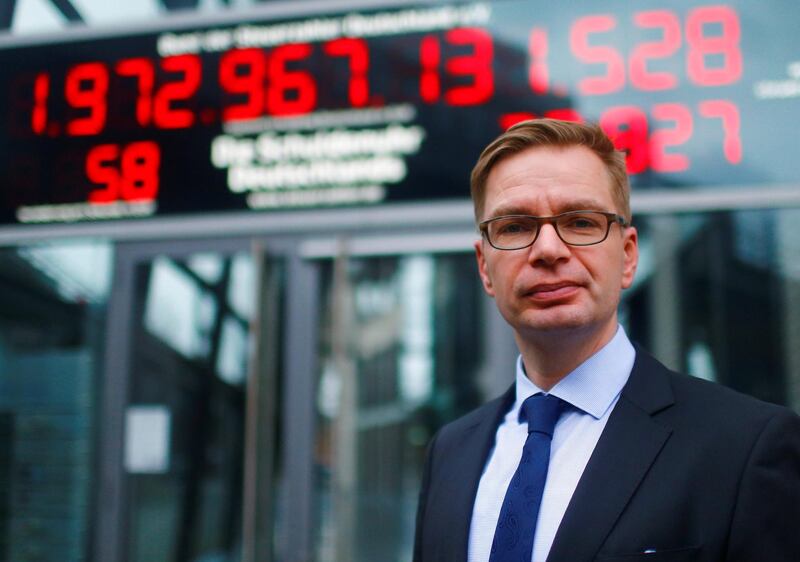Germany’s “debt clock”, which is run by tax lobbyists to shame the government into fiscal discipline, is running backwards for the first time in its 22-year history.
Displayed prominently in Berlin, the clock now shows public coffers moving into the black at a rate of €78 per second.
Granted, at the current rate of decline, it would take more than 800 years to bring the total debt of €2 trillion down to zero.
But the Federation of German Taxpayers (BdSt), the group that set up the digital clock, nonetheless hailed the turnaround as a good sign for Europe's biggest economy.
Its president Reiner Holznagel said: "Only recently the federal and state governments bore responsibility for this policy of piling up debt."
"This policy that harms future generations has fortunately now been stopped."
Debt levels have in fact been falling since 2013 to around €23,827 per person now.
But Mr Holznagel said the effect would only be reflected in national and regional budgets from this year.
_______________
Read more:
[ German SPD to start talks with Merkel next week if members agree ]
_______________
The BdSt set up the clock at the entrance to its central Berlin headquarters in 1995.
German Chancellor Angela Merkel and her former finance minister Wolfgang Schaeuble enshrined balancing the books at the heart of their programme from 2014.
In fact, the country has in recent years booked budget surpluses running into billions.
The bonanza is expected to continue over the four years ahead to the tune of €30 billion according to Peter Altmaier, the man now running the finance ministry.
As coalition talks with the Social Democrats get under way, politicians see the cash as an opportunity to lavish gifts on their bases in the form of tax cuts, higher spending or public investments.
With debt at 68.1 per cent of gross domestic product, Germany is one of the few EU members that approach the 60-per cent limit set in the Treaty of Maastricht, along with Lithuania, Estonia, Luxembourg, Finland and the Netherlands.
Meanwhile, France and Spain remain in the European Commission's sights for annual budget deficits above 3 per cent of GDP per year, meaning they are building up debt too fast under EU rules.
In theory, both nations could face fines from Brussels if they fail to tighten the purse strings - although the Commission has never levied such a punishment, even on repeat budget sinners.





